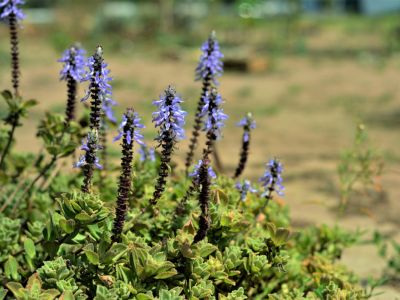Plectranthus Spurflower Information
Blue spurflowers are fast-growing, shrubby plants that reach mature heights of 6 to 8 feet (1.8 to 2.4 m.). The thick, velvety stems support plump, pale grey-green leaves with intense purple undersides. Showy, bluish-purple flowers bloom throughout much of the season, depending on climate. Plectranthus is a rambunctious plant that generates new plants from seed, or by resprouting stem fragments within the soil. Keep this in mind, as some types of Plectranthus can be invasive and harmful to native vegetation in certain areas. It’s always a good idea to check with your local Cooperative Extension before planting. If the plant’s aggressive nature is a concern in your area, you can always plant blue spurflowers in a container to reign in rampant growth. Some people have good luck growing blue spurflower indoors. Place the plant in bright light but away from direct sun.
Growing Spurflower Plants and Spurflower Care
Spurflower is evergreen in USDA plant hardiness zones 9 through 11. The plant isn’t killed by frost, but the top will die down and resprout from the roots. A hard freeze, however, will kill blue spurflower plants. Otherwise, growing spurflower plants is a piece of cake. Blue spurflower tolerates sun but prefers dappled light or partial shade. Spurflower requires well-drained soil. Dig a few inches of compost, chopped leaves or other organic material into the soil before planting. Although the plant is quite drought tolerant, it looks its best with occasional irrigation, especially during hot, dry weather. Pinch the plant occasionally during active growth to promote a compact, bushy plant and prevent spindly, leggy growth. Although Plectranthus is relatively pest resistant, it’s a good idea to watch for spider mites and mealybugs. If you notice pests on your blue spurflower plant, insecticidal soap spray usually takes care of the problem.
